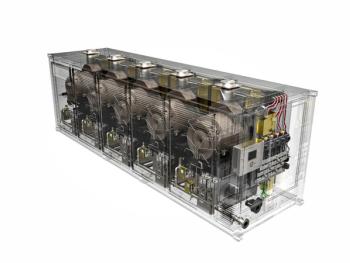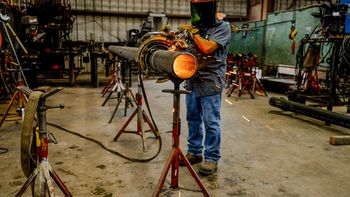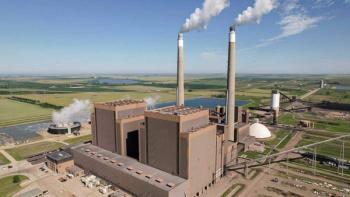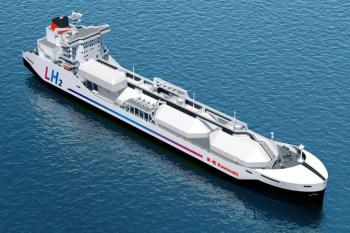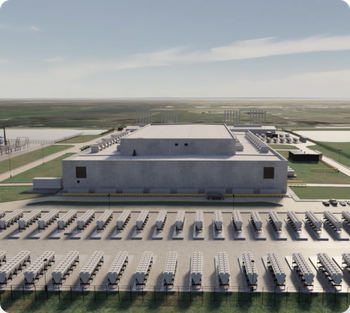
Protecting magnetic bearings from external factors and process contamination
A case study presented by Behrooz Ershaghi of Atlas Copco Mafi-Trench, Faisa Saez of British Petroleum and Marc LeDuc of Atlas Copco Mafi-Trench at the 41st Turbomachinery Symposium explained how magnetic bearings can be protected from external factors and process contaminations.
Shah Deniz located offshore Azerbaijan is one of the largest turboexpander gas processing plants
in the world (900MMSCFD pipeline dew point control). Several failures due to external factors / process contamination was
affecting magnetic bearing sensors, hence the AMB control system.
Each Turboexpander train is rated for 9 MW (12,000 HP). It expands the process gas from 105 bar to 60 bar (1520 to 875 PSI). Glycol (MEG) is injected at turboexpander inlet to
inhibit Hydrate formation.
Potential Turboexpander Issues with Hydrates:
• Blockage of inlet screen – possibility of collapsing
• Freezing of IGV segments – loss of process control
• Rotor Unbalance – high radial vibration
• Blockage of discharge piping – reducing turbo expander Δp
• Blockage of wheel axial balancing ports – high axial load
• Ice particle impingement – erosion of wheel and IGVs
There are two Turboexpander/Compressor trains. First failure happened a few months after commissioning. Production loss is $ 0.5 million per day.
During certain upset conditions, process trips & sales compressor trips, the seal gas differential pressure was not available. Turboexpander discharge pressure would rise from 69 bar
(1000 PSI) to above 85 bar (1230 PSI). Seal gas supply pressure was set at 80 bar (1160 PSI).
Modifications made included shaft seal vent routing. Installation of a dump valve to reduce the shaft seal vent port pressure. Seal gas header pressure was raised to maximum allowed by the process (85 bar ~ 1230 PSI). Control logic was changed to open quickly so as to avoid sudden back pressure on the seal. Controller was tuned for faster action.
Magnetic bearings should be protected from process contamination such as MEG, wet H2S , Mercury, etc. Effective counter measure for protection against ingress of contaminant should be provided. All upset conditions shall be checked during initial process simulation and results considered during system design.
Newsletter
Power your knowledge with the latest in turbine technology, engineering advances, and energy solutions—subscribe to Turbomachinery International today.

